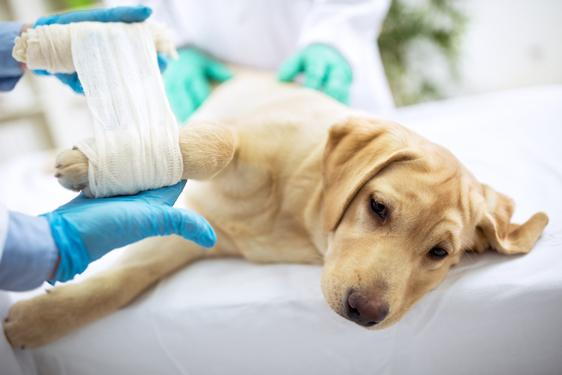
Pet Surgery FAQs
If you need some type of pet surgery in the city of Baltimore, The Village Vet is one place you can go that may be able to give you the help you need. There are many different types of pet surgery that an animal could need, including surgery that would spay and neuter animals or that would involve pet anesthesia.
The following are some questions that pet owners often have before sending their pets into surgery.
Why is preanesthetic blood testing necessary?
Preanesthetic blood testing is important to test the animal's internal organ function before administering anesthesia. There are some pets that could have serious issues that could potentially cause complications with anesthesia or surgery, and it is good to know this beforehand. If there is a minor medical problem, adjustments can be made in pet anesthesia. If there is a more serious problem, the procedure may need to be postponed.
Why can my pet not eat before surgery?
In order to minimize the chance that stomach contents will be regurgitated or aspirated during or after anesthesia, it is important that surgery is performed on an empty stomach. You should keep your pet away from food for eight to 10 hours before the procedure, although you can allow them to drink a little bit of water the night before. Of course, this can vary depending on the specific procedure, and you will need to talk to your vet about this.
Is anesthesia safe for my animal?
There are different types of anesthesia that can be used. Generally, the most common and safest method is general anesthesia that is administered intravenously or as a gas. There are also machines that can monitor your pet's state throughout the surgery, making the procedure much safer. Additionally, anesthesia will only be administered after your animal has been cleared for surgery, meaning the veterinarian is only even going to administer it if he or she has already assessed that it will be safe.
Is surgery risky for my pet?
There is always some risk associated with any surgery. However, a skilled veterinarian will take precautionary measures, such as pre anesthetic blood testing, monitoring of your animal during and after the surgery, and the utilization of IV fluids. These measures will minimize the amount of risk.
It is also likely that your pet will undergo some type of pain. It can be difficult to ascertain how much pain a pet is in since they will not be able to speak to either you or the veterinarian about how they are feeling. However, pain medication will be administered as the veterinarian sees appropriate.
Call The Village Vet Today
If you live in Baltimore and want to know more about different types of pet surgery, such as those that would involve pet anesthesia and those that would spay or neuter your pet, you should feel free to contact the professionals at The Village Vet. They will be able to answer any questions that you have and let you know if your pet is a good candidate for any given type of surgery that could improve his or her quality of life.

